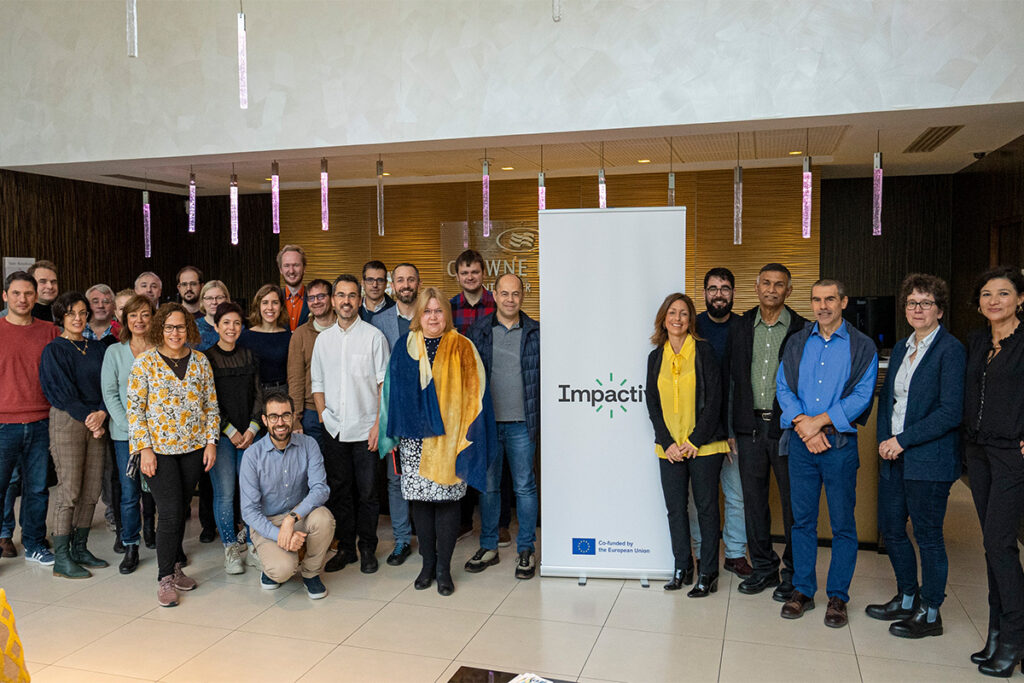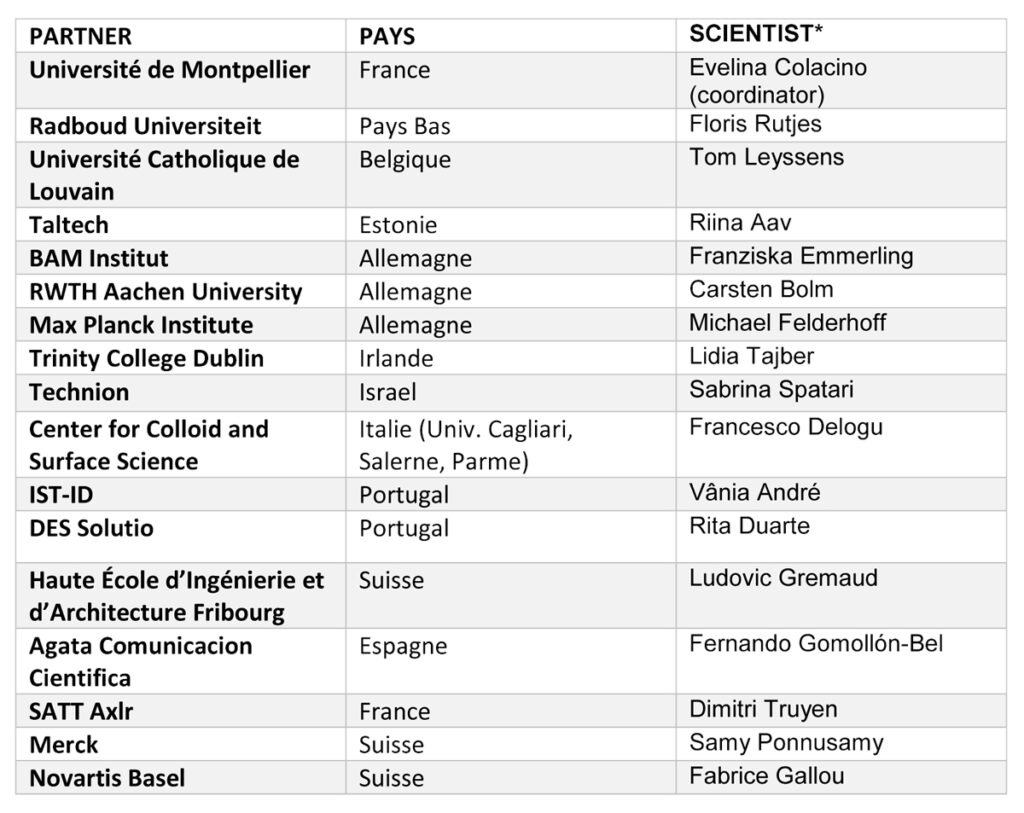Impactive: sustainable pharmaceutical chemistry
Producing molecules of pharmaceutical interest in a more environmentally friendly, economical, and efficient way: these are the objectives of the European Horizon Impactive project led by the University of Montpellier and coordinated by chemist Evelina Colacino from the Charles Gerhardt Institute. This large-scale project proposes mechanochemistry as a disruptive technology capable of supporting the evolution of the pharmaceutical industry.

It is one of the most polluting activities there is, with a carbon footprint greater than that of the automotive sector. How can we reduce the environmental impact of the pharmaceutical industry while remaining innovative and competitive? For Evelina Colacino, the answer lies in mechanochemistry, a technology that makes it possible to do away with the highly polluting solvents used in traditional chemistry to synthesize molecules of pharmaceutical interest, the very ones that form the basis of the active ingredients in our medicines.
These solvents facilitate contact between products, allowing different molecules to interact. The problem is that these substances are highly polluting. "Solvents account for 80% of the waste generated by molecule production," explains Evelina Colacino. Doing without them is therefore an ecological necessity, and mechanochemistry is an ideal alternative for achieving this. The principle: "mix" the molecules by applying mechanical forces using beads, reactive extrusion, or acoustic activation, without solvents, to create molecules of interest. This technology is already being used successfully in other industrial sectors (aeronautics, cosmetics, fertilizers, etc.), and Impactive is now set to validate its use in the pharmaceutical industry.
An international project

This technology, which chemist Evelina Colacino from the Charles Gerhardt Institute in Montpellier has been working on for years, is gaining momentum, as evidenced by the success of the Impactive project (Innovative mechanochemical processes to synthesize green active pharmaceutical ingredients) led by the University of Montpellier. "This is a large-scale, international multi-partner project with €7.7 million in funding, "explains the project leader. "It shows that Europe has been paying close attention to these issues for several years now."
Because mechanochemistry not only promises a cleaner pharmaceutical industry, but also a more competitive one. "Not only does it reduce solvent use by 85% and cutCO2 emissions generated by chemical reactions, but mechanochemistry, which requires less energy, also reduces production costs by 12% and can make companies more competitive," the chemist points out.
A reduction in production costs could be combined with a reduction in import costs, as another challenge facing the sector is to relocate some of the production currently concentrated in Asia in particular. "We saw this during the Covid crisis, when certain drugs manufactured in China were in short supply even though they are essential to patients' health," recalls Evelina Colacino. One of Impactive's major challenges is to make Europe more independent in the face of certain geopolitical issues, for example. In this respect, this European research project has a real socio-economic impact in addition to its scientific impact."
Sustainable innovation
Manufacturers in the sector have also shown keen interest in this technology. "Among the 17 partners involved in the project, in addition to universities and research centers, are SMEs and the companies Merck and Novartis, the latter providing an internal perspective on these issues. We also need to understand their difficulties in order to align our research with these constraints," explains the researcher.
Mechanochemistry also offers significant potential for innovation compared to traditional chemistry. "Some compounds are insoluble and cannot be mixed using solvents. From this perspective, mechanochemistry can solve synthesis problems that have been encountered until now." To achieve this, Impactive brings together specialists from several disciplines: "researchers in organic synthesis, process chemistry, physical chemistry... these highly diverse challenges require a wide range of skills." They are all pooling their knowledge to create nothing less than a more sustainable, independent, competitive, and autonomous European pharmaceutical industry.

* Only the name of the scientist representing the research unit involved in Impactive is indicated.
Follow IMPACTIVE on social media too:
Twitter: @IMPACTIVE_EU
LinkedIn: Impactive